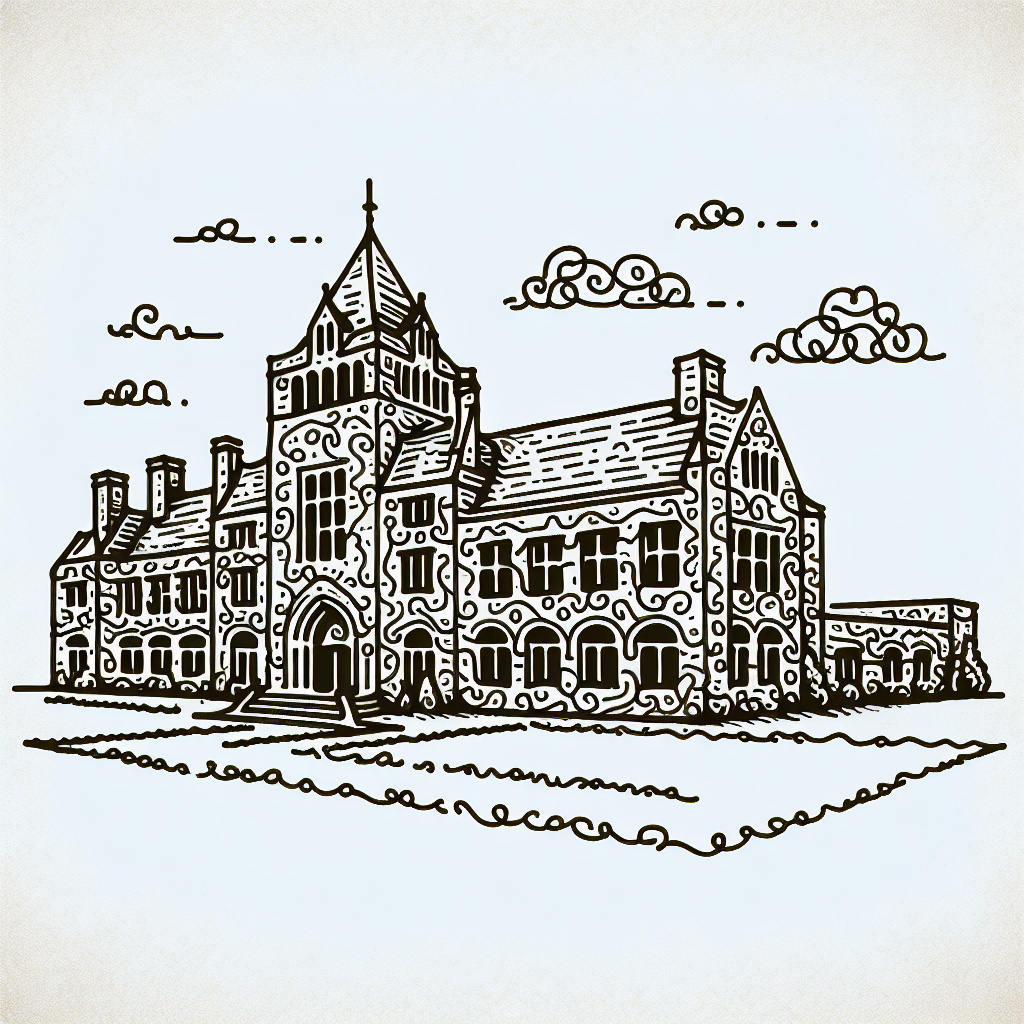Introduction
Princeton University, a member of the Ivy League, stands as one of the most prestigious and selective institutions in the world. Known for its rigorous academics, distinguished faculty, and historic campus, Princeton consistently attracts top-tier applicants from across the globe.
This guide offers an in-depth analysis of the Princeton University acceptance rate, exploring historical trends, key factors that influence admissions decisions, and essential insights for prospective applicants. Understanding the Princeton University acceptance rate is crucial for students aiming to navigate the highly competitive admissions process at this elite institution.

📊 Acceptance Rate Breakdown
🔹 Current Undergraduate Acceptance Rate
As of the most recent admissions cycle, the Princeton University acceptance rate for undergraduate applicants stands at 4%. This figure underscores the university's highly selective admissions process (usnews.com).
🔹 Early Action Acceptance Rate
Students who apply through Princeton’s Single-Choice Early Action program experience a moderately higher acceptance rate of 10%. This option allows applicants to express strong interest without committing to attend if admitted (usnews.com).
🔹 Graduate School Acceptance Rate
In the 2024–25 academic year, Princeton University offered admission to 1,465 out of 19,931 graduate school applicants, resulting in an approximate acceptance rate of 7%. This rate reflects competitive admissions across a variety of advanced degree programs (profile.princeton.edu).

📈 Historical Trends in Acceptance Rates
📅 Year-over-Year Decline
The Princeton University acceptance rate has shown a steady decline over the past several years. In the 2016–2017 admission cycle, the acceptance rate was 6.5%. By 2019–2020, it had decreased to 5.8%, and most recently, in the 2023–2024 cycle, it dropped further to just 4% (acceptancerate.com). This trend reflects a consistent tightening of admissions at the university.
📉 Influencing Factors Behind the Decline
Several factors have contributed to the declining Princeton University acceptance rate:
- Rise in application volume: More students are applying to Princeton each year, driven by increased accessibility to online applications and broader outreach efforts.
- Increased competition among top-tier applicants: A growing number of highly qualified students are applying, making the selection process more competitive.
- Limited enrollment capacity: Despite the rise in applications, Princeton maintains a fixed class size, which limits how many students can be admitted each year.
These elements combined have led to a steeper drop in the Princeton University acceptance rate over time.

🧠 Academic Profile of Admitted Students
Understanding the academic profile of students admitted to Princeton University offers insights into why the Princeton University acceptance rate remains so competitive.
📚 Standardized Test Scores
Admitted students typically present top-tier standardized test scores. For the SAT, the middle 50% of enrolled students score between 1500 and 1580. For the ACT, most admitted students have composite scores ranging from 34 to 35 (usnews.com). These high scores reflect the selectivity associated with the Princeton University acceptance rate.
💼 Academic Rigor
In addition to strong test scores, successful applicants demonstrate significant academic rigor. Most have completed multiple Advanced Placement (AP), International Baccalaureate (IB), or honors courses. This rigorous coursework indicates a student's readiness for the demanding academic environment at Princeton, further explaining the low Princeton University acceptance rate.
🧾 Application Components
Applicants must submit either the Common Application, the Coalition Application, or the QuestBridge Application, along with Princeton-specific supplements. Additionally, a graded written paper is required as part of the application process (en.wikipedia.org). These comprehensive requirements contribute to the holistic review process that underpins the highly selective Princeton University acceptance rate.

🏆 Comparative Selectivity
🇺🇸 National Standing
Princeton University consistently ranks among the top three most selective universities in the United States. With an acceptance rate around 4%, the Princeton University acceptance rate is comparable to that of Harvard, Stanford, and Yale. These institutions form a group of elite schools known for admitting only a small fraction of highly qualified applicants each year.
🎓 Ivy League Comparison
When comparing Ivy League schools, the Princeton University acceptance rate is one of the lowest:
UniversityAcceptance RateHarvard~3.4%Princeton4%Yale~4.4%Columbia~3.7%
This data places Princeton near the top in Ivy League selectivity, reflecting its rigorous admissions standards and highly competitive applicant pool.

Admissions Philosophy and Evaluation Criteria
Holistic Review Process
Princeton University employs a holistic review process to evaluate applicants, meaning that it considers a wide range of factors beyond standardized test scores and GPA. Admissions officers closely examine extracurricular achievements, personal essays, and letters of recommendation to gain a fuller understanding of each candidate. Leadership roles, community service, creative endeavors, and demonstrated interest in specific academic fields also play a crucial role. This comprehensive approach helps explain why the Princeton University acceptance rate remains highly competitive, as the institution looks for well-rounded individuals who can contribute meaningfully to campus life.
Single-Choice Early Action
Through its Single-Choice Early Action program, Princeton allows students to apply early without committing to attend if admitted. This non-binding option provides a strategic advantage, as the acceptance rate during early action is typically higher than in the regular decision round. Well-prepared applicants with strong academic records and compelling personal profiles may improve their chances by applying early, though they must refrain from submitting early applications to other private institutions.
Institutional Priorities
Princeton prioritizes forming a diverse, intellectually vibrant, and collaborative student body. The admissions committee considers an applicant’s potential for research, commitment to public service, and overall character. These institutional goals influence admissions decisions and are partially reflected in the selective Princeton University acceptance rate, which favors students who demonstrate curiosity, initiative, and a willingness to engage in meaningful dialogue and service.

Application Routes and Requirements
Application Options
Prospective students aiming to join the highly selective admissions pool—reflected in the low Princeton University acceptance rate—have three main application platforms to choose from:
- Common Application: A widely used platform that allows students to apply to multiple institutions with one centralized application.
- Coalition Application: Designed to support students from diverse backgrounds, this platform emphasizes college planning and collaboration.
- QuestBridge Application: Tailored for high-achieving, low-income students, this route offers a potential path to a full four-year scholarship through Princeton’s partnership with the QuestBridge National College Match program (en.wikipedia.org).
Required Materials
To be considered for admission, and to stand out in a process characterized by a competitive Princeton University acceptance rate, applicants must submit the following materials:
- Letters of recommendation: Two from teachers and one from a school counselor.
- School report and transcript: Including a full academic record from high school.
- Personal essay and Princeton-specific short responses: These essays provide insight into the applicant’s personality, experiences, and fit for the university.
- Optional standardized test scores: While Princeton maintains a test-optional policy, students may submit SAT or ACT scores if they feel these enhance their application.
- Graded written paper: This helps the admissions committee assess critical thinking and writing abilities in an academic context.
Each component plays a role in Princeton’s holistic review process, which is essential given the university’s exceptionally low acceptance rate.

Tips for Prospective Applicants
✅ Strengthen Your Profile
To be competitive given the low Princeton University acceptance rate, applicants should aim to present a strong and well-rounded profile. This starts with academics: take the most rigorous courses available at your high school, such as Advanced Placement (AP) or International Baccalaureate (IB) classes, to demonstrate your ability to handle college-level work.
Beyond academics, Princeton values leadership and initiative. Engage deeply in a few extracurriculars where you can show significant involvement or impact, whether through leading a club, starting a project, or excelling in a competitive activity. Admission officers also look for students who bring unique perspectives or life experiences. Highlight these in your essays and application materials to differentiate yourself from other applicants.
📆 Apply Strategically
Given the highly selective nature of the Princeton University acceptance rate, applying strategically can make a difference. If Princeton is your top choice, consider applying through Single-Choice Early Action. This non-binding option allows you to demonstrate strong interest and potentially receive an admission decision earlier than Regular Decision applicants.
It's also important to prepare your application materials well ahead of deadlines. Start working on your essays, gathering recommendation letters, and organizing your academic records early. A polished and thoughtful application reflects your genuine interest and effort, which can help you stand out in a competitive applicant pool.

Conclusion
With an undergraduate acceptance rate of just 4%, the Princeton University acceptance rate places it among the most selective institutions globally. Gaining admission requires more than just top grades—it demands academic excellence, a compelling and authentic personal narrative, and a well-thought-out application strategy. In such a competitive environment, staying informed about the process and remaining true to your story are essential elements for making a strong impression on the admissions committee.

References
- US News: Princeton Admissions – Offers detailed statistics and insights into undergraduate admission trends and the Princeton University acceptance rate.
- Princeton Graduate School Profile – Provides official data on graduate admissions and costs, contributing to a broader understanding of the Princeton University acceptance rate across academic levels.
- AcceptanceRate.com: Historical Data – Features historical acceptance rate data for Princeton University, useful for analyzing trends over time.
- Wikipedia: Princeton University Admissions – Summarizes admission processes and acceptance statistics, offering context for the Princeton University acceptance rate.







.png)






